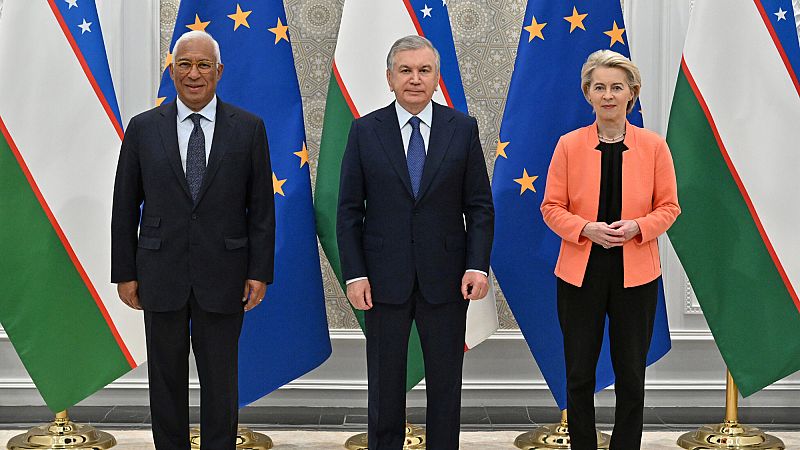
This week's Central Asia-EU summit in Samarkand has shown historic unity of the countries in the region, the five nations' leaders highlighted on Friday.
Uzbekistan’s President Shavkat Mirziyoyev praised the improvement of neighbourly relations in Central Asia, saying the summit between the region and the EU would not have been possible just a short time ago.
Mirziyoyev made the comment in the Uzbek city of Samarkand during talks between Central Asian leaders and an EU delegation led by European Commission President Ursula von der Leyen and European Council President António Costa.
“The countries of the region are strengthening trust and good neighbourliness among each other, expanding large-scale collaboration and cooperation,” Mirziyoyev noted.
Until recently, relations between some Central Asian countries were “simply frozen” and some of their borders were closed, the Uzbek president added.
“No one could even imagine that in the near future we would be representing our region together during discussions with European leaders,” he said.
Mirziyoyev went on to say that Central Asia was ready for a new future, one in which Europe would play a role as a partner.
During the first summit between the EU and the Central Asian countries of Kazakhstan, Kyrgyzstan, Tajikistan, Turkmenistan and Uzbekistan, a strategic partnership between the regions was announced.
The agreement includes cooperation in developing transport infrastructure, raw material extraction, clean energy and digital connectivity.
“Kazakhstan remains a reliable supplier of oil and gas to Europe. 13% of all the imports of the EU come form our country. A large part of it goes through the Caspian Pipeline Consortium," said Kazakhstan President Kasym Tokayev.
"We appreciate the support of the European Union aimed at securing the stable and longterm functioning of this consortium. We are also developing the alternative routes for the transport of crude oil,” he stated.
Days before the summit, Kazakhstan announced the discovery of a vast rare earth deposit.
The region's natural resources include lithium and manganese, which are both in demand from the tech industry. The Central Asia five have pledged to cooperate with the European Union on their extraction.
The summit discussed a wide range of proposals for cooperation, from joint development funds and investment forums to regional water management strategies, all with the European Union's participation.
As part of these plans, the Trans-Caspian Transport Corridor — which will bypass Russia — will be established with the aim of cutting the overland journey between Europe and Central Asia in half.







